2020 Corvette: GM TechLink: Corvette Cooling System Draining and Filling Tips
Estimated Reading Time: 3 MinutesCorvette Cooling System Draining and Filling Tips
July 22, 2020
GM TechLink
The cooling system of the 6.2L V8 engine (RPO LT2) on the 2020 Corvette (Fig. 1) is designed to help maintain engine performance under extreme track environments. When filling the system, it’s required to run the engine several times during the procedure to ensure all air is bled from the system. Use a mixture of 40% DEX-COOL engine coolant and 60% clean, drinkable water. The complete draining and filling procedure can be found in document ID: 5404647 in the appropriate Service Information.
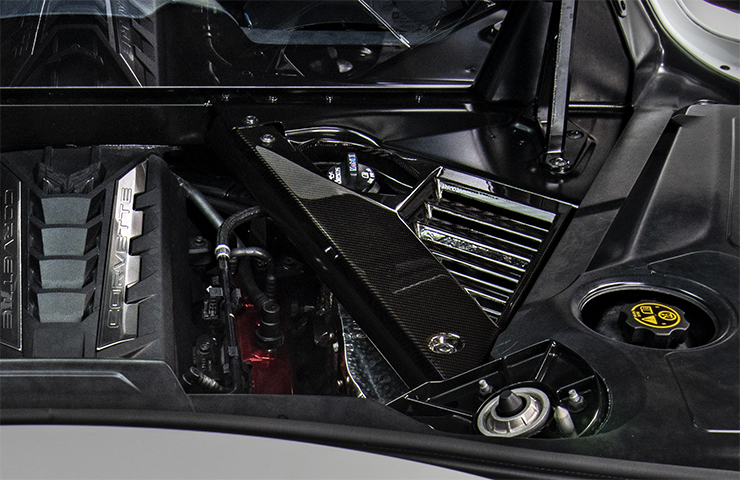
Fig. 1
Radiator Drain Cocks and Hose Connectors
There is a radiator drain cock at each of the two engine radiators. (Fig. 2)
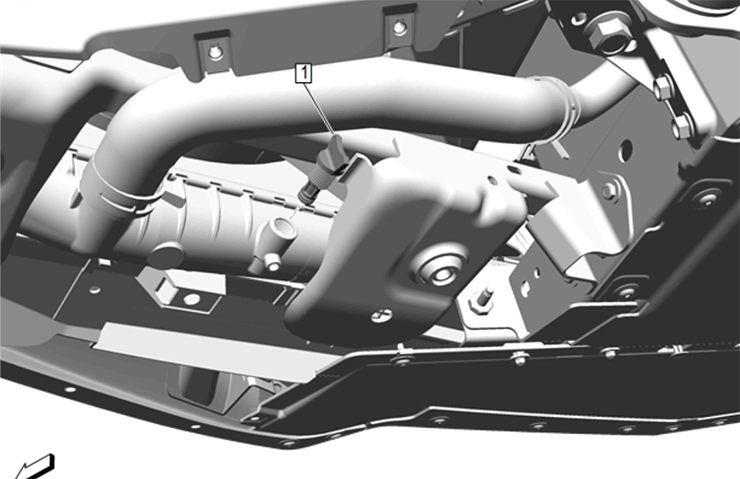
Fig. 2
There also is a radiator drain cock at each of the two engine auxiliary radiators in front of the rear wheels. (Fig. 3)
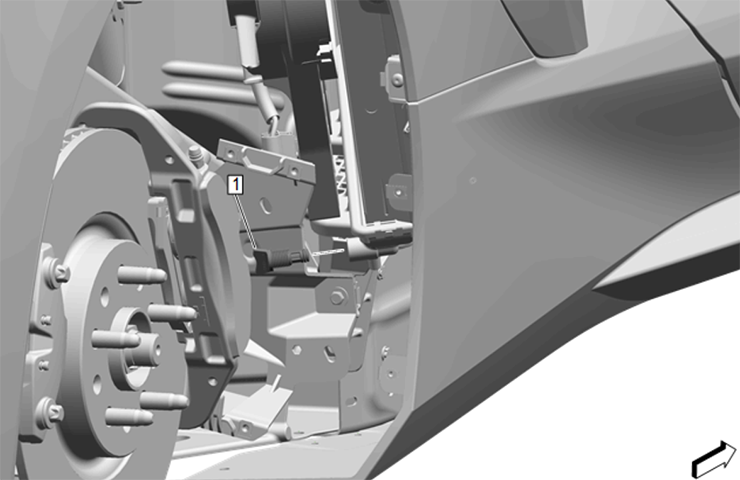
Fig. 3
The auxiliary radiator inlet hose connectors and hose caps for each auxiliary radiator are located at the front of the vehicle on each side of the front compartment. (Fig. 4) The front compartment rear access cover and front sight shield must be removed.
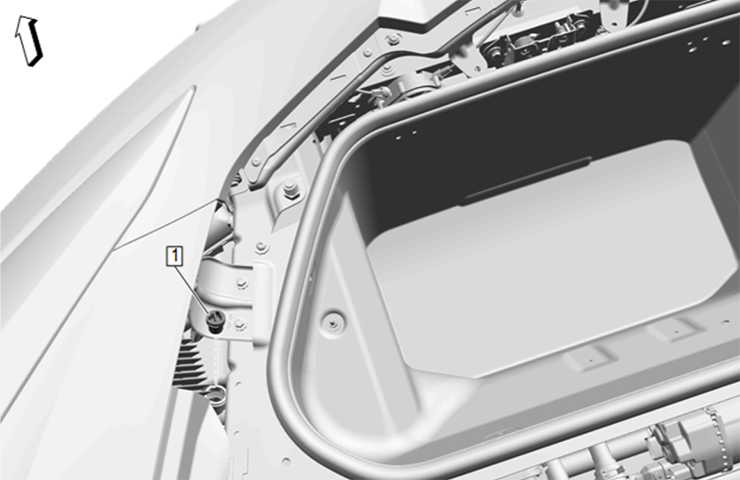
Fig. 4
The radiator inlet hose connector cover, located at the rear of the vehicle, uses a hose retainer. (Fig. 5) Disengage the hose retainer to remove the connector cover.
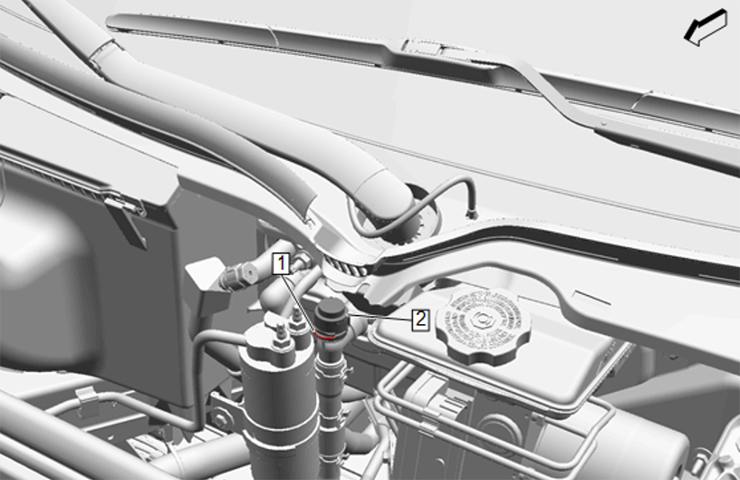
Fig. 5
Draining and Filling
After draining the system, inspect the coolant. If the coolant is normal in appearance, follow the filling procedure. If the coolant appears discolored, follow the flush procedure. Refer to the appropriate Service Information procedure.
TIP: Be sure to complete all steps of the appropriate filling or flushing procedure. An improper coolant level may cause engine damage.
When filling the radiator surge tank (Fig. 6, #2), monitor the auxiliary radiator inlet hose connectors and install the hose caps when coolant flows from the connectors. Fill the radiator surge tank to the base of the fill neck. It may be necessary to add coolant to the top of each auxiliary radiator inlet hose connector if coolant doesn’t flow from the auxiliary radiator inlet hose connectors.
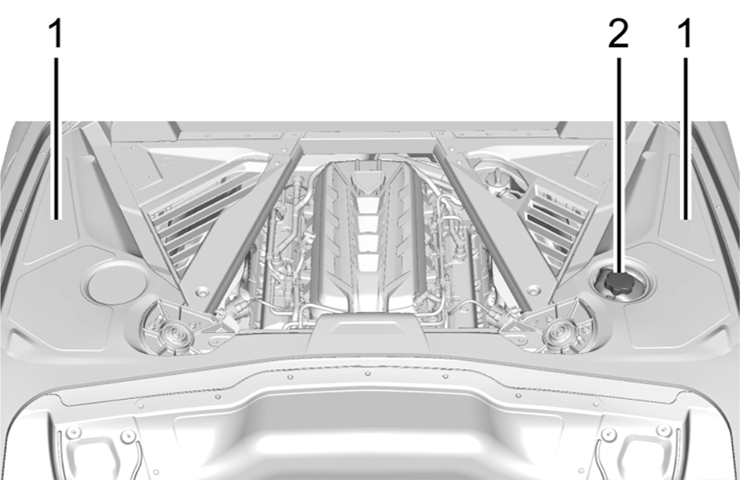
Fig. 6
Running the Engine
The filling procedure requires starting and running the engine several times. The air conditioning should be off.
A critical part of the filling procedure instructs running the engine at idle until one of the auxiliary radiator outlet hoses near the auxiliary radiator inlet hose connector becomes warm or the coolant temperature approaches 185°F (85°C). Once the hose is confirmed hot, engine speed should be held at 3,000 RPM for 10 minutes.
TIP: The engine speed must be 3,000 RPM for 10 minutes in order to generate enough volume of coolant flow to push any air pockets out of the cooling system.
After running the engine and letting it cool for at least one hour, the coolant level at the auxiliary radiator inlet hose connectors and the radiator inlet hose connector must be checked again. Additional cool down time will lower the coolant level in the radiator surge tank, allowing more coolant to be added to the system. Fill the radiator surge tank to the base of the fill neck while monitoring the connectors.
Once the filling procedure is completed, the coolant level should be adjusted to the cold fill line on the radiator surge tank. (Fig. 7) After the vehicle has been driven for a while, check the coolant level in the surge tank and fill to the cold fill line on the radiator surge tank, if necessary.
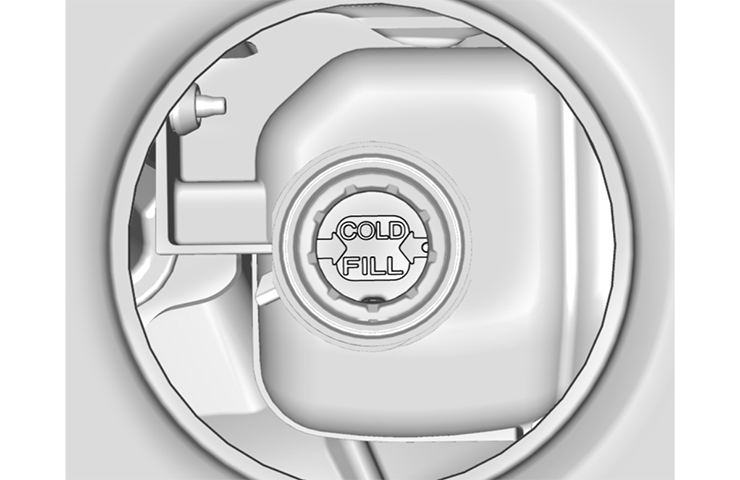
Fig. 7
Refer to Service Information document ID: 5404647 for the complete draining and filling procedure.
– Thanks to Jeff Strausser